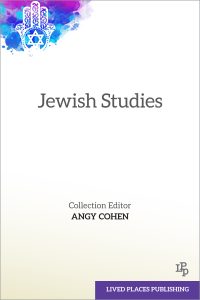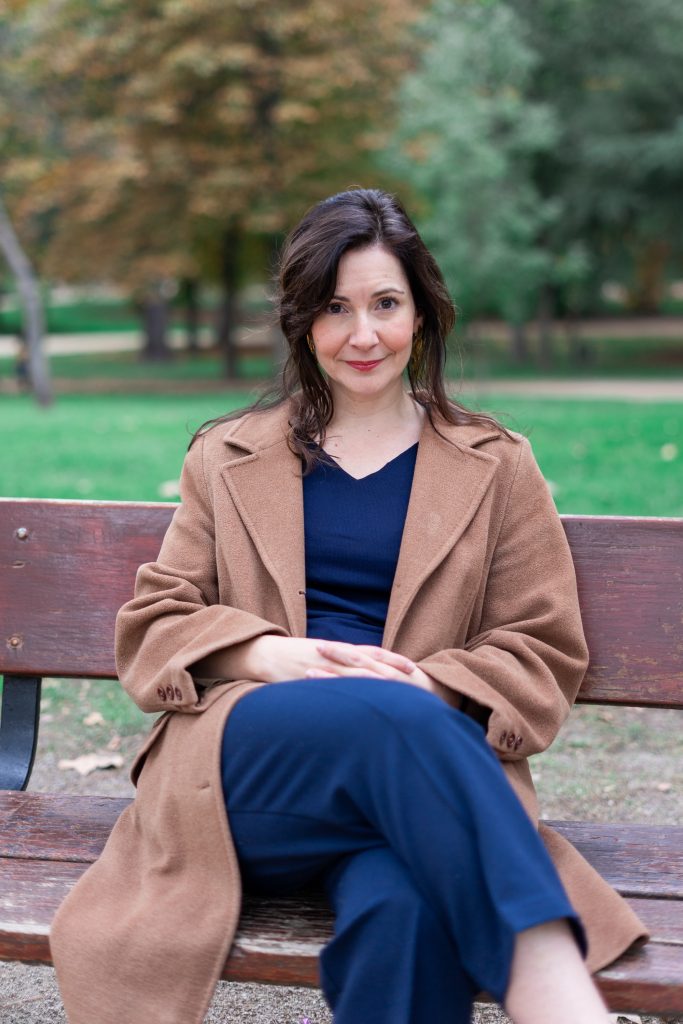Jewish Studies
Recently Published
Forthcoming Books
Collection Editor:
Dr. Angy Cohen
Angy’s Vision for the Collection
 The Jewish Studies Collection welcomes narratives, life stories, ethnographies, and other ways of “telling” that describe Jewish lived experience in the context of identity and place. This collection is guided by the belief that story-sharing, delivered by subject-matter experts, can shorten the distance that separates us and increase our collective understanding so that we can stand against thinking and policies that exclude people for simply being who they are.
The Jewish Studies Collection welcomes narratives, life stories, ethnographies, and other ways of “telling” that describe Jewish lived experience in the context of identity and place. This collection is guided by the belief that story-sharing, delivered by subject-matter experts, can shorten the distance that separates us and increase our collective understanding so that we can stand against thinking and policies that exclude people for simply being who they are.
By “lived places” this collection means much more than geographical or physical locations, but also social and institutional spaces where identity is expressed and often contested. The question of the place of Jews, the territorial and national belonging of the Jewish people is both an ancient and a deeply contemporary topic. Ashkenazi Jews, Arab-Jews, Sephardim, Mizrahim, and so many other subcategories are an example of the attempt to grasp and simplify the complexity of Jewish belonging. This collection is committed to representing this complexity mainly, but not exclusively, in the following fronts: migrations and diasporas, transmission of family narratives, life in Israel, and women’s experiences.
Jewish identity acquires a very different meaning in colonial Iraq, in independent Algeria, in a development town in Israel, in an ultraorthodox neighborhood in New York or in a settlement in the West Bank. Likewise, the meaning and implications of being Jewish are worlds apart depending on whether one is a Mizrahi woman in a development town, a Holocaust survivor in Jerusalem, the child of Moroccan migrants in Beersheva, a religious feminist in a Sephardi community, a Yemenite grandmother in Southern Tel Aviv, an Arab-Israeli in East Jerusalem, or a settler in the West Bank. The Jewish Studies collection of Lived Places welcomes submissions from researchers, activists and/or individuals interested in making these experiences accessible for educational institutions to help understand the complexity and diversity of the contemporary Jewish experience.
For seasoned writers, my role as collection editor will be that of occasional progress-checker, deadline-reminder, and draft reader. For first-time writers, my role will be that of co-strategist, frequent draft commentator, and general encourager. For those in-between, we will come up with an arrangement that will permit authorial freedom and editorial feedback.
About the Collection Editor:
 Dr. Angy Cohen is a Ramón y Cajal Researcher at the Spanish National Research Council (Madrid, Spain) and Adjunct Professor at University of Calgary (Canada). In her course “Women and Judaism” at University of Calgary, she teaches about the position of women as both objects of study, textual characters, and interpreters of tradition. Angy belongs to the Sephardi-Mizrahi Beit Midrash (House of Study) Arevot – Women Weaving Tradition, located in Jerusalem. Her latest project on Sephardi women’s blessings explores their ethics of care and wealth of knowledge. She has held postdoctoral positions at Tel Aviv University, Concordia University, University of Calgary and Universidad Complutense de Madrid.
Dr. Angy Cohen is a Ramón y Cajal Researcher at the Spanish National Research Council (Madrid, Spain) and Adjunct Professor at University of Calgary (Canada). In her course “Women and Judaism” at University of Calgary, she teaches about the position of women as both objects of study, textual characters, and interpreters of tradition. Angy belongs to the Sephardi-Mizrahi Beit Midrash (House of Study) Arevot – Women Weaving Tradition, located in Jerusalem. Her latest project on Sephardi women’s blessings explores their ethics of care and wealth of knowledge. She has held postdoctoral positions at Tel Aviv University, Concordia University, University of Calgary and Universidad Complutense de Madrid.
Call for Proposals:
Ready to get started? Please fill out this form to contact Angy directly with any questions, or download our proposal guidelines to begin the process immediately.
